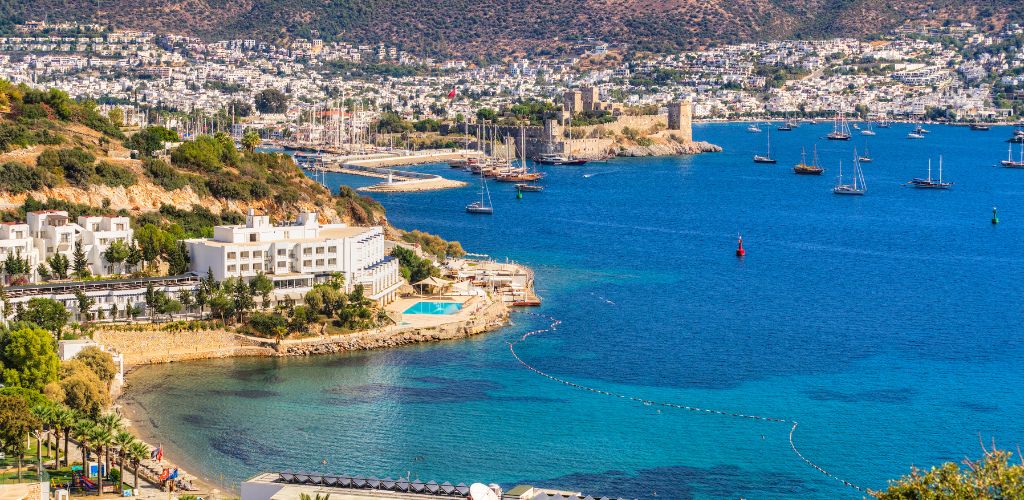
Have you ever thought about living in Turkey? It’s not a surprise if you have, many people visit this amazing country, fall in love with it, and instantly think about relocating. There are many pros to living in Turkey, in fact far more pros than cons, but it’s always important to weigh everything up before making a decision.
I lived in Turkey for several years, and it’s an experience I look back on with a deep fondness. There are so many amazing places to visit and experiences to be had, but I’m not going to lie—there are some cons to living in Turkey too. I still visit Turkey very regularly, as that’s where my husband is, so I’m very well placed to help you decide whether this could be a good move for you or not.
15 Pros and Cons of Living in Turkey
From several years of living in various locations around Turkey, I experienced a lot. There are many great sides to this country and in all honesty, the upsides definitely outweigh any negatives. However, the cons can be frustrating, to say the least.
Does it matter whether you’re male or female? Not at all. Despite what you might think, it’s perfectly easy for a foreign woman to live in Turkey and not struggle at all; I never did even before I met my husband. However, the troublesome parts are often things might not quite expect.
So, let’s weigh up the pros and cons of living in Turkey and come to a firm conclusion at the end.
Where is Turkey?
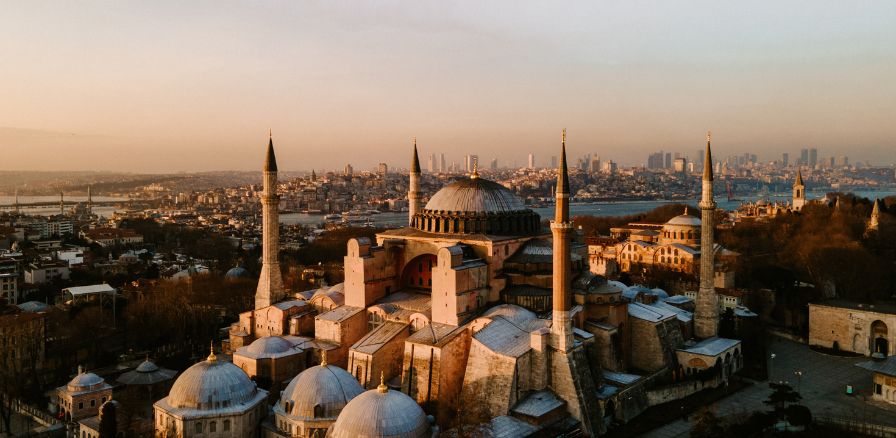
Turkey sits in the eastern part of Europe, with part of the country in Europe and the majority of it in Asia. It’s often referred to as a bridge between Europe and the Middle East, and that’s definitely reflected in its culture and traditions to a large extent. In fact, Istanbul is the only city in the world that straddles two continents; it’s a must for your dream destination list!
What most people don’t realize about Turkey is how big it is; I certainly underestimated its size at first. Covering a huge 783,562 km², we’re talking huge cities (Istanbul is a megacity), towns, villages, desert landscapes, forests, and stunning beaches. While Ankara is the capital city, Istanbul is without a doubt the biggest and most visited of them all.
Bordered by Greece, Bulgaria, Syria, Iran, Iraq, Georgia, Azerbaijan, and Armenia, Turkey has both land and sea borders. Most people visit Turkey during the summer months for its amazing coastal resorts, including Bodrum, Antalya, and Marmaris, but the cities, including Izmir and Istanbul, are also heavily visited. But, that doesn’t mean you shouldn’t head to the central reaches, such as Cappadocia and Ankara, or even the northern Black Sea Coast – all of these areas are must-visits too.
In addition to the modern-day living side of Turkey, some areas are extremely traditional and more conservative, such as those found in the east and southeast. These areas are more difficult to visit, but you certainly shouldn’t be put off; this is where you’ll find some real hidden gems and some of the best food you’ve likely ever tasted.
Pros of Living in Turkey
Because I like to start things off with a positive, let’s take a look at the pros of living in Turkey. For me, there were plenty, and you’ll see some of my main highlights from the list below. It’s also no surprise that there are more pros than cons.
1. You’re Surrounded by Amazing Culture

One of the main advantages of living in Turkey is the culture. It’s so different from everything else you might be used to, and it varies from region to region. Basically, what I mean is that no matter where you go, you’ll experience something totally different and new. I learned so much during my time in Turkey, and I loved being exposed to the different traditions.
You’ll find that the western side of the country is quite European, especially Izmir, and the southern beach resorts are extremely international. However, if you venture to Istanbul you’ll find a melting pot of old and new, history and modern, and neighborhoods that make you feel like you’re somewhere else entirely. When you head further east, you’ll find conservative areas that have traditions that have been passed down through generations, dating back centuries.
What I found really beautiful about Turkey is that I was accepted everywhere. Even in the more old-fashioned areas, I never felt out of place, and while you do have to be careful of what you wear in some spots (not all), I could throw myself into the traditional daily life of that place and discover new things on the daily.
2. Plenty of Cultural and Historical Sights to See

Turkey is super-historical; even Istanbul alone has more history than most countries! The entire country has some fantastic places to check out, including ancient cities such as Cappadocia and, one of my all-time favorite places, Ephesus. You also have Pamukkale and the ancient city of Hieropolis, the Lycian Way between Fethiye and Antalya, natural sights like Saklikent Gorge, Mount Nemrut, and Trabzon‘s famous tea plantations.
That’s just a snapshot of places you can visit, and there are countless more. Of course, during the summer months, you can simply head to the beach, and the Antalya region has some of the best in the world, in my opinion. All in all, it’s easy to decide on somewhere to head and explore whenever you have the time; all you need to do is decide where you’re going and just go!
Istanbul is packed with amazing sights, such as Hagia Sophia and the Blue Mosque, and huge palaces such as Topkapı and Dolmabahce. It would be near-impossible to see all there is to see during a vacation or even a few visits, but you can tick a lot off by relocating and traveling around the country over time.
3. Amazing Food

For me, one of the biggest benefits of living in Turkey was access to the amazing food. Seriously, I believe that Turkish cuisine is some of the best in the world and once you’ve had a few dishes, you’ll agree. Whether you’re a meat eater, vegetarian, or vegan, there’s plenty for you to try, but of course, Turkey is famous for its kebabs; I didn’t realize just how many there are.
I found myself starting to learn how to cook Turkish food, and it was a great experience. I make a mean guveç now, which is a delicious stew, as well as dolma, and a full-on Turkish breakfast. I’ll talk shortly about the cost of living, but you can purchase fresh fruits and vegetables very easily from bazaars, so learning how to cook isn’t difficult at all.
On top of that, the street food in and around Turkey is cheap and mouth-watering. Even if you visit a traditional restaurant, you’ll be able to choose from a huge choice of different grilled meats and vegetable-based dishes. While I found that Turks do tend to eat a lot of bread, the food itself is generally pretty healthy and packed with seasonal ingredients.
SEE ALSO: 15 Best Restaurants in Istanbul (Top Places to Eat)
4. Affordable Cost of Living
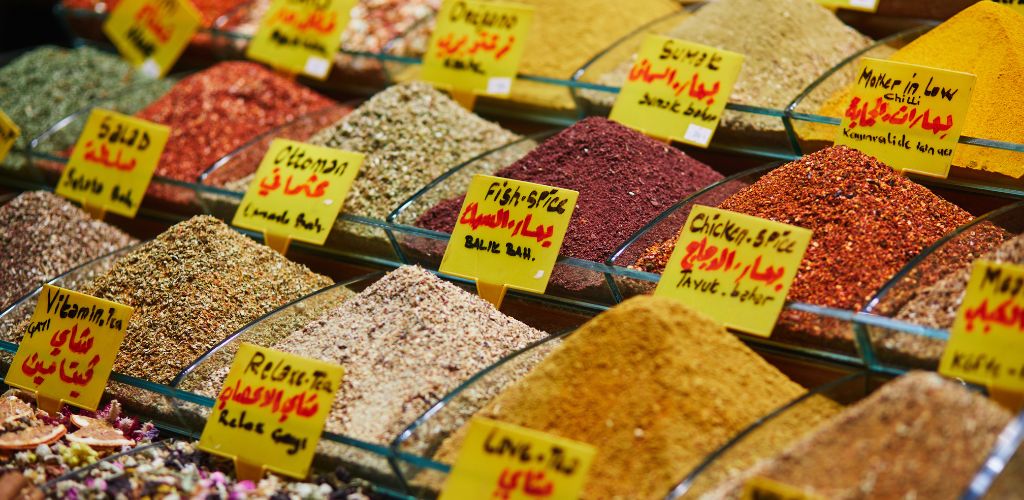
I should point out that the cost of living across Turkey has risen over the last year or so, but it’s still cheaper than the rest of Europe and you can live a relatively comfortable lifestyle for very little cash. Overall, the cost of renting a one-bedroom apartment in a large city is around 10,000-15,000TL ($340-$500) with utilities on top.
You can also cut costs by eating at home, and as I mentioned, you can fill your kitchen with fresh produce and meat from supermarkets and local bazaars. Depending on where you choose to live, you’ll find that Turkey has quite an outdoor style of living, especially if you live near the sea. During the summer months, I spent most of my time on the beach, which meant my days were cheap, full of vitamin D, and extremely enjoyable.
It’s worth keeping in mind that for a Turkish person, the cost of living isn’t that cheap. The Turkish minimum wage is still quite low, although it has risen considerably over the last couple of years. However, for people visiting or living in the country with savings in another currency, the cost of living is a lot lower than in most other countries.
5. Large Communities of Ex-Pats

I spent a lot of time in Marmaris and Fethiye on the south coast, as well as Istanbul. In all areas, I found a large expat community, and Izmir has a growing foreign population too. You can meet like-minded people really easily, which will definitely help you to settle in a lot faster.
When I first moved to Turkey, I did find it a bit of a culture shock. Things seemed to be very different from what I was used to, but this was several years ago; it’s a lot different now. Having said that, finding people I could relate to from back home really helped me settle in and it’s definitely one of the pros of living in Turkey.
Despite that, I have a lot of Turkish friends too, but it doesn’t hurt to meet people who understand you on a different level, and those you can talk with about familiar life. Expat communities are also a great source of advice when you’re not sure how to do something or how to fix a certain problem. As I’ll talk about shortly, things don’t move very quickly in Turkey so if you do need to fix some paperwork or complete a task, knowing someone who’s done it before is a blessing.
6. Great Summer Weather and Mild Winters
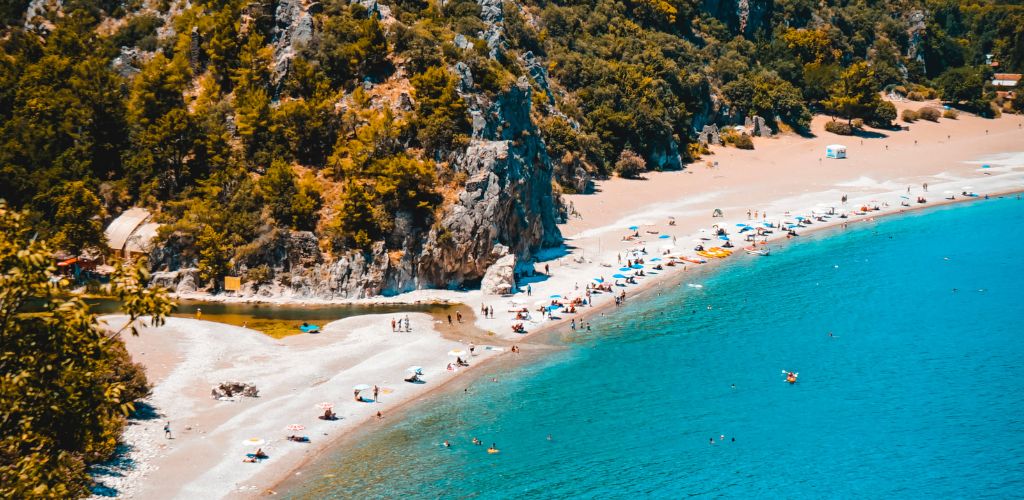
Turkey is famous for its beaches during the summer months, but that’s partly due to the amazing weather it experiences across the board. Even though it’s a huge country, the summer sees very little rain (unless you’re on the Black Sea coast) and plenty of heat. In fact, the average high temperature in July in Antalya is around 34°C/93°F, however, I’ve experienced it in the high 30s and low 40s on several occasions.
You’ll certainly need to invest in either a very good fan or an air conditioning system during the summer months if you want to sleep comfortably. For me, that was my main struggle of summer. However, if you’re someone who detests the cold, Turkey is a good choice during the winter months, particularly on the south coast.
Even the winters aren’t that cold, unless you head to Ankara and Istanbul, which experience pretty cold temperatures in January in particular. The average low in Istanbul in January is around 4°C/39°F, with a chance of snow. However, Fethiye experiences warm winters, like the rest of the south coast; the average high in January in Fethiye is 13°C/55°F with around 5 hours of sun per day.
7. Good Healthcare System

One of the biggest advantages of living in Turkey is the healthcare system. I think it’s one of the best in the world and it’s open to residency permit-holding foreigners, as long as you sign up, go through the paperwork and health checks beforehand, and pay monthly. It’s called SGK, and if you get sick or need an operation, you’re covered in state hospitals provided your payments are up to date.
If you don’t hold a residency permit or don’t want to sign up for SGK, you can purchase a private health policy that will cover your healthcare needs. There are plenty of companies operating in Turkey that provide policies like this, and they’re very helpful. I originally had a private policy, but then I realized the benefits of SGK and switched; I recommend checking it out if you qualify.
It’s easy to overlook things like this in favor of the cost of living and thinking of all the fun you’re going to be having, but you really don’t want to end up sick in a hospital without any insurance. Thankfully, most Turkish hospitals also have interpreters to help you out, especially in the larger cities and tourist resorts.
8. Friendly People
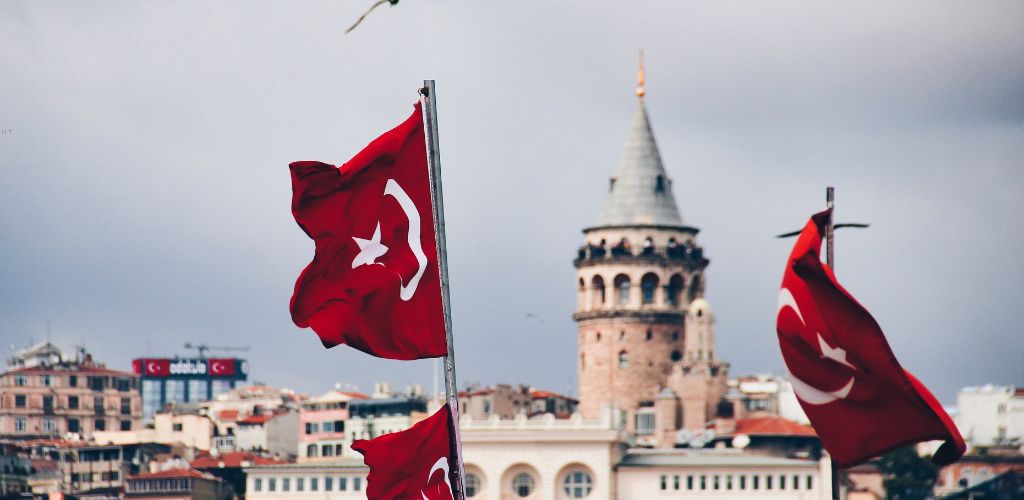
You might have read about overly-friendly waiters and hasslers in tourist resorts, and I’m not going to lie, you do come across people like this. However, on the whole, people in Turkey are extremely friendly, very helpful, and will gladly go out of their way to make you feel comfortable. I never had any problems with unwanted attention when I was walking around as a lone female in either the tourist resorts or Istanbul.
It does help if you can speak a few Turkish words, even if you simply learn how to say hello and thank you; people will appreciate it. If you’re in a more rural area or somewhere less touristy, you’ll notice that Turkish hospitality goes up a notch. People will want to give you the best welcome; it’s a huge part of Turkish culture, and it’s something you’ll notice the moment you arrive.
Before I went to Turkey I read lots of stories about needing to wear a fake wedding ring or pretending not to speak English. Please don’t listen to any of that, it’s such a myth. Just like anywhere in the world, there are some bad eggs out there, but I have nothing but good things to say about my experiences with locals in Turkey.
9. Moderate Crime Rates

This one might surprise you, but that’s probably because you’re only reading about Istanbul. Yes, some parts of Istanbul are a little on the dodgy side, but you simply avoid them. I never had a bad experience there, but like anywhere in the world, you need to be sensible and use your common sense.
As a whole, Turkey has low to moderate crime rates and you’ll see a large police presence in all major city centers during weekends, holidays, and whenever an event is going on in particular. It’s a reassuring thing that makes you feel safe, and officers are very helpful if you need to ask something or have a problem. That’s one of the biggest benefits of living in Turkey.
While things do happen, Turkey has a lower crime rate than the USA, and crime levels have dropped over the last few years. Personally, I always feel safe in Turkey. It goes without saying but, don’t walk around at night in areas you don’t know, don’t flash your valuables, be careful in crowded areas, and stay away from any protests.
10. Great Public Transport Options

I never drove in Turkey and in all honesty, I don’t think I ever would. That’s not to say the roads aren’t great quality because they are, but there are some crazy drivers, and distances can be far. However, it’s also because I don’t see the need to drive when the public transport network is so good.
Whether you’re traveling a short distance or a long one, you’ll find regular buses, trains, ferries, and flights to accommodate your needs. I particularly like the long-distance bus company Pammukale, as they cover most of the country and their buses are comfortable. But, if you prefer to get somewhere quickly, you can fly domestically from all major cities, even if you do need to connect in Istanbul.
Trains aren’t quite as extensive, but they’re still possible on certain routes. Local buses are also reliable, plentiful, and cheap. Depending upon which area you’re in, you can usually get a one-way journey for around 15TL/50 cents. Of course, there are also taxis, but these tend to be the most expensive option; I only use them late at night or when I don’t have a choice.
Cons of Living in Turkey
I’m not going to pretend it’s all sunshine and roses as there are some cons when it comes to living in Turkey. It’s mostly down to the famous Turkey time, which essentially means that everyone is always late. However, once you get used to it, you tend to do the same thing!
Let’s balance things up and tell you the possible downsides of making Turkey your home.
1. Language Barrier

Most people speak English in the large towns and cities, but not everyone. If you venture further away, such as to a rural area, you’ll find that you may struggle with the language barrier. I would advise that you learn some basic Turkish before you go, because not only will locals respond to you better if you make an effort to communicate, but you’ll find life easier.
Turkish isn’t the easiest language to learn, but there are lots of online resources available. Failing that, Google Translate is always a useful tool.
For the most part, with a little understanding and patience, you’ll make yourself understood. Before I was confident enough to speak Turkish I always managed to get by, even if it did include gestures, a lot of nodding, and a few confusing episodes. But if you want to have a smoother and less embarrassing time, learning a little of the language is definitely the way to go.
2. Visa Difficulties

One of the biggest downsides to living in Turkey is visa issues. This is because, over the last couple of years, it’s become harder to get a residency permit if you don’t already live in the country. Naturally, this could change so it’s important to keep up to date with the news and official government resources.
At the time of writing, most people applying for a first-time short-term residency permit for touristic reasons, i.e. those who will rent a house/apartment, are refused. Renewals are also much harder than they used to be. But it’s not impossible!
Every applicant’s situation is different so it’s important to find up-to-date information according to your needs. One way around this is to stay for 90 days out of every 180 days. While Turkey isn’t in the Schengen Zone, it does have the same rules in terms of how long you can stay within a rolling 180-day period.
3. Large Distances to Travel Around
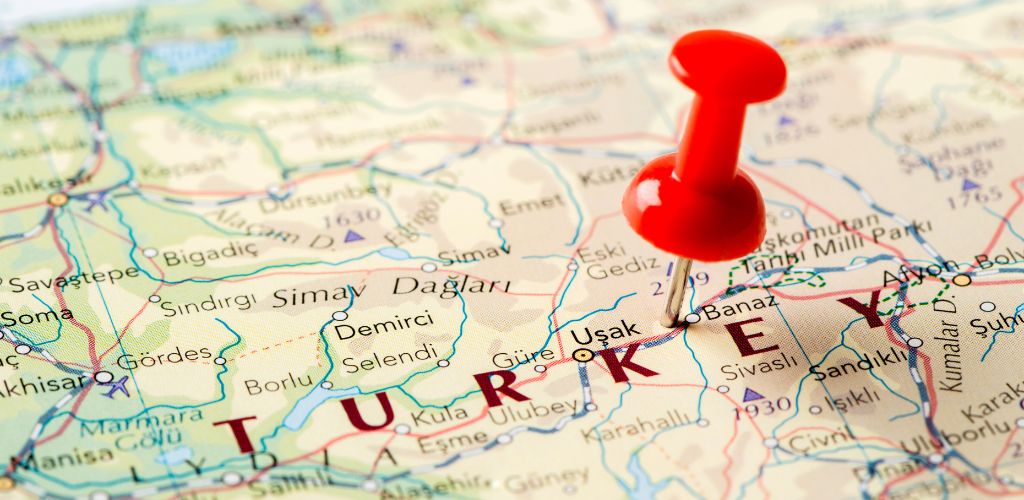
There’s so much to see and do that you’ll probably write a list and want to head off on your travels immediately. I know I did. But what I quickly realized is that the distances between major sights are vast, and that means a lot of time in the air or on the road. It’s not the biggest disadvantage of living in Turkey by any means, but it does mean that your sightseeing plans might be a little more complicated than you’d imagine.
If you need to visit another city for a specific reason, such as a visa appointment, then you’ll probably need to block the whole day out of your schedule. Having said that, public transport is reliable, as I mentioned earlier. But you may still need to travel for several hours to reach another city.
The first time I visited Istanbul from Marmaris, I spent 11 hours on a bus. The second time, I flew, but that also meant traveling for almost 2 hours to Dalaman Airport, waiting, enduring a 1.5-hour flight, more waiting, and then experiencing around three hours stuck in traffic on the other side. As you can see, nothing is easy!
4. Nothing Moves Very Quickly

Linking very closely with the last point, you’ll quickly become accustomed to what I like to call, “Turkey time.” If someone tells you they’re going to be half an hour, you can triple that. I find it one of the major cons of living in Turkey because I like things to run on time.
The same applies if you want to complete a task; you’ll no doubt find a mountain of paperwork and several offices you need to visit before you can complete one thing. It’s frustrating, and it’s even harder if you don’t speak the language. The good thing is that people are very helpful so you can always ask someone to give you a hand.
Renting a house, sorting out your visa, and opening a bank account, are all things that require visits in person to several places and lots of paperwork. Don’t expect to do it all in a day; you’ll set yourself up for disappointment.
5. Very Difficult to Find Work

For most people, one of the biggest downsides of living in Turkey is that you can’t work without a work permit. And those work permits aren’t easy to get.
If you want to work for a Turkish company, the employer must prove that a Turkish person cannot do the job they want to hire you for. It’s sensible when you think about it; they’re trying to preserve jobs for their people. This typically means that foreigners wanting to work often end up as holiday reps and English teachers with large companies.
And no, it’s not wise to try to work illegally. Many companies will hire you and not get you a permit, but if you’re caught, you face instant deportation and a long ban. Seriously, don’t even try it, it’s just not worth it.
Is Living in Turkey Worth It?
There are far more pros of living in Turkey than cons, and for me, it’s a big ‘yes’ all the way. I loved my time living in this beautiful country, and I’d do it all again. Yes, there are some frustrating things about living in Turkey, but you’ll find those kinds of challenges wherever you go in the world.
The biggest stumbling blocks currently are visa issues and the fact that you need a permit to work. These are things you can overcome with the right information, and if you truly have your heart set on spending longer, then find the information, get some additional help, and work through it. I guarantee it will be worth it.